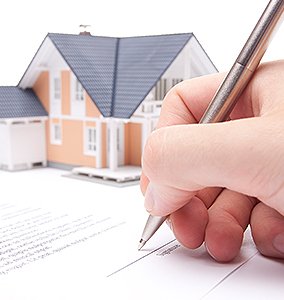Renting vs. buying a home: What’s best for you?
It’s a personal decision that also depends on current prices, mortgage rates and housing inventory.
Homeownership is often touted as central to the American dream. Buying a home allows you to put down roots, become part of a community and build equity. But it’s not for everyone. For some people, a house may be unaffordable. For others, renting may be a lifestyle choice.
How do you decide whether to buy or rent a home? Consider these six key questions.
-
Can you afford to buy a home?
Home affordability is always a critical issue, but even more so when a housing market is competitive. When housing inventory is limited, that is one factor that can lead to a so-called seller’s market, where people trying to offload homes benefit more, generally, than buyers.
That’s not the only issue to think about when you are considering whether you can afford to buy. Are mortgage rates high or low? If they are high, you may find yourself paying more money for a smaller home than you might have purchased a few years ago. Ask yourself, would you be able to afford a house that satisfies your wish list and your budget?
-
Would you be approved?
Your credit plays an important role in your ability to qualify for a mortgage, so you should know your credit history before you house hunt.
You can receive a free copy of your credit report once a year from each of three major credit reporting companies. If your credit isn’t where you want it to be, the following actions may help you improve it:
- Make sure your credit reports are correct. If there are mistakes, contact the credit reporting agency.
- Pay all your bills on time.
- Pay down existing balances.
-
What impact do current pricing trends have?
Comparing home prices across the United States has limited value when you’re seeking to buy a home or justify renting in a particular market. Do your research in the region you plan to live.
For example, home prices may be high, but in some markets renting can be cost-prohibitive. Economic forecasts can also be helpful as you make your decision. For example, many observers expect mortgage rates to fall in the coming years.
-
How long do you expect to stay in the home?
If you are likely to move because of work or other circumstances, you might choose to avoid incurring the large up-front costs associated with a home purchase. However, if you are confident you’ll stay put for five years or longer, or you are in a profession that allows you to work remotely, buying a home could make perfect sense. You can gain a sense of belonging and stability while gradually building equity, as home values typically appreciate over time.
-
Are you ready to maintain and repair a home?
If you buy a house, be aware that you won’t have a landlord to lean on for repairs and maintenance. That will fall on your shoulders. If you lack the skills or inclination to do routine maintenance and repairs, factor in the cost of paying a handyman or contractor to help.
-
Have you considered all related expenses?
Also consider the additional costs associated with owning a home versus renting. As a homeowner, you’ll likely pay homeowners insurance, taxes and utilities. As a renter, however, you might also pay extra for parking, utilities and pets.
When it comes to buying versus renting, there is no right or wrong answer. It all comes down to what makes sense for your lifestyle and your bottom line.
Start today
- Read more: First-time homebuyer loan programs.
- Learn more: Take our Home Ownership course.
- Take action: Speak to a mortgage loan officer about the homebuying process.






